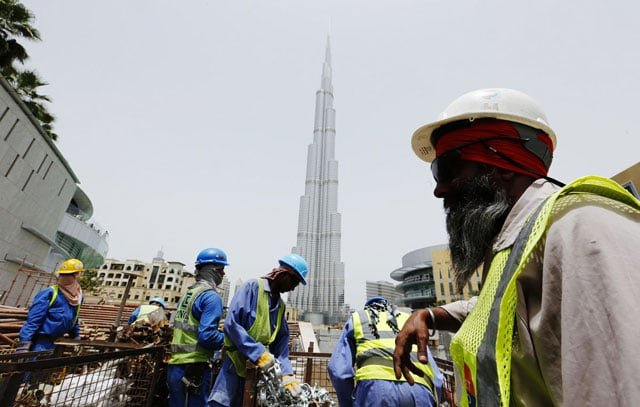The migration of workers from Pakistan to foreign countries saw a significant decline in 2024, dropping to 727,381—a decrease of over 15 percent compared to 2023, when 862,625 workers of various skills and trades moved abroad. The data, released by the Bureau of Emigration and Overseas Employment (BEOE), highlights a notable shift in migration trends, with the Gulf Cooperation Council (GCC) countries remaining the primary destinations despite challenges.
Saudi Arabia continued to dominate as the top destination for Pakistani workers, receiving 452,562 migrants in 2024, accounting for more than 62 percent of the total workforce migration. Oman emerged as the second-largest destination, attracting 81,587 workers and replacing the United Arab Emirates (UAE), which saw a significant drop in numbers. The UAE hired 64,130 Pakistani professionals in various fields, while Qatar and Bahrain received 40,818 and 25,198 workers, respectively.
These countries facilitated the hiring process by establishing centers to assist Pakistani workers with visa policies and job placements. Beyond the GCC, 13,695 Pakistani professionals migrated to the United Kingdom, while 1,077 moved to the United States, according to the BEOE.
The majority of Pakistani workers migrating abroad in 2024 were employed in blue-collar jobs. Laborers (364,574) and drivers (185,209) made up over 75 percent of the total workforce exports. In addition, 3,642 doctors and 8,018 engineers left Pakistan in search of better job opportunities, reflecting a continued brain drain of skilled professionals.
The official data does not account for individuals who bypass the BEOE registration process, particularly those migrating to Europe and North America. In these regions, there is no requirement to register with the bureau for immigration or employment purposes. Many individuals apply directly for jobs or visas through private agents, recruitment agencies, or personal connections, resulting in a significant number of unrecorded emigrants.
Additionally, undocumented workers—those who overstay their visas or settle abroad without proper documentation—are not included in the official statistics. Many travel on tourist visas and later find work, forming a substantial portion of the migrant population. This unrecorded migration further underestimates the true scale of emigration from Pakistan.
The decline in migration numbers is partly attributed to hiring restrictions in the UAE and other Middle Eastern countries in 2024. These restrictions were driven by economic challenges, fluctuating oil prices, and policies aimed at prioritizing local workers. The hiring freeze significantly impacted the number of Pakistani workers migrating to the Gulf region, which has traditionally been a major destination for labor exports.
Despite the slowdown in the Middle East, there has been an increase in migration to Europe and North America, where skilled professionals and students are seeking better opportunities. These migrants are drawn by higher salaries, improved living standards, and more stable economies. However, many of these individuals are not captured in the BEOE’s official data, as they do not register through the bureau.
Despite the decline in migration numbers, remittance inflows from overseas workers have shown significant improvement in the current financial year. Projections suggest that remittances will reach $35 billion by the end of the year. This increase is attributed to several factors, including the migration of workers, stability in the local currency against major currencies, incentives for banks and currency agents, and the adoption of technological solutions.
The lack of comprehensive data on undocumented workers and those who bypass official channels highlights the challenges in accurately assessing the scale of emigration from Pakistan. This gap in data not only underestimates the number of Pakistanis working abroad but also impacts the understanding of their economic contributions through remittances. Addressing these challenges will be crucial for better policymaking and support for overseas workers.










